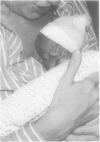Abstract
Separation between mothers and very low birthweight infants is often prolonged with subsequent psychological distress, behaviour problems, and lactation failure. Babies as small as 700 g, who no longer require oxygen, can be safely and enjoyably held naked, except for a nappy, between the mother's breasts for up to four hours a day. We have carried out a randomised trial among babies less than 1500 g. Seventy one infants were randomised. In 35, the mother was helped to hold her baby in skin to skin contact and encouraged to do so whenever she visited the baby. In 36, the mother was encouraged to handle her baby but without skin to skin contact. Mothers using skin to skin contact lactated for four weeks longer on average than the control group. At 6 months of age the infants who had skin to skin contact cried significantly less than the control group. Skin to skin contact can safely and enjoyably be offered to very low birthweight infants especially in developing countries where the mother's lactation is vital.
Full text
PDF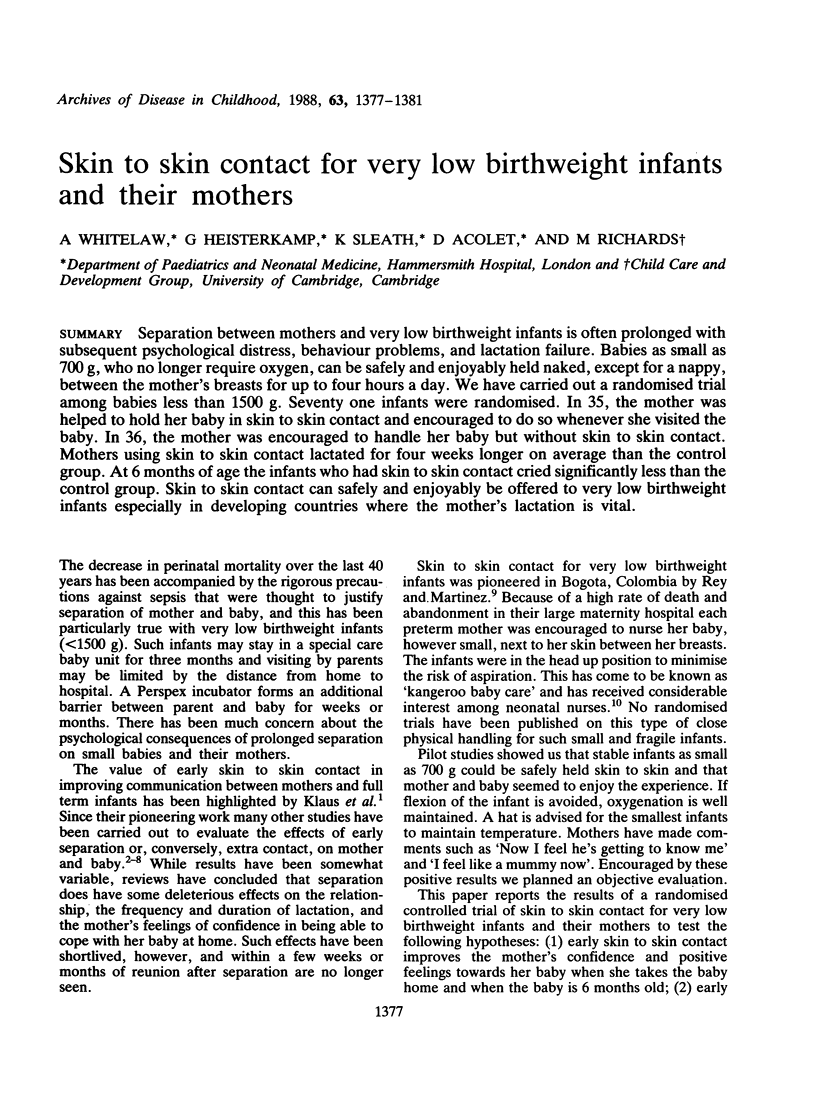
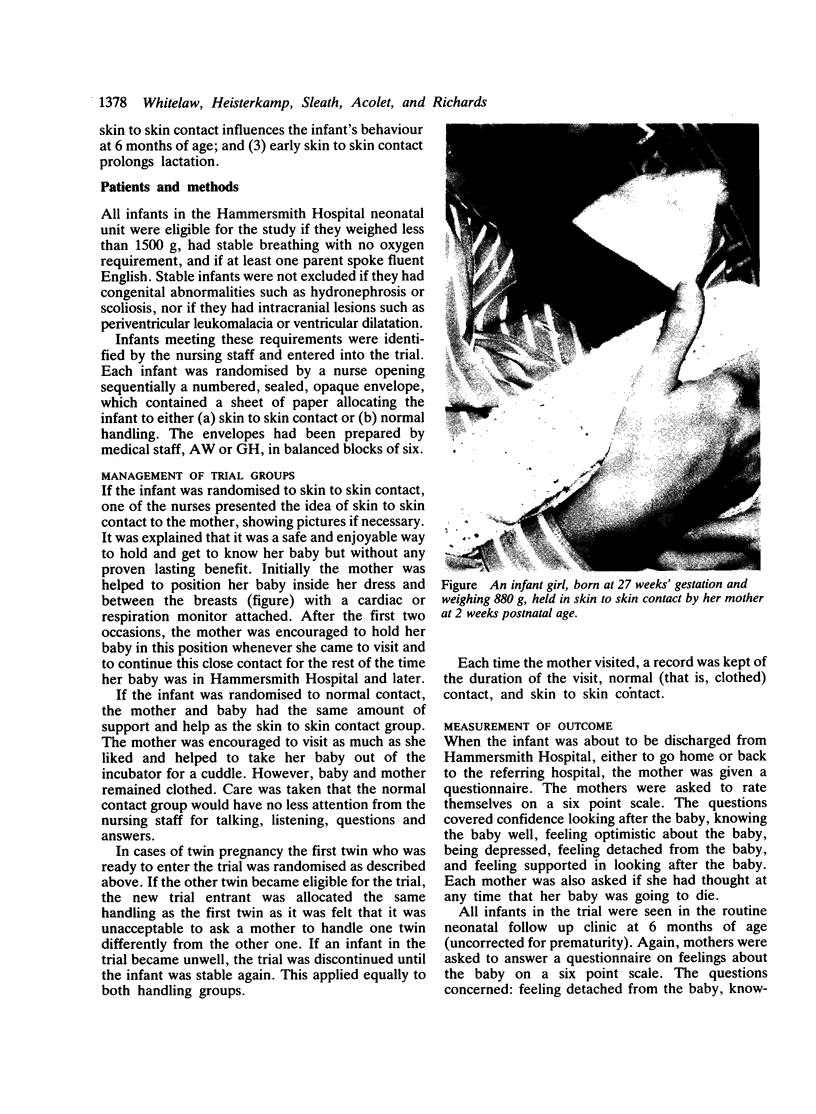
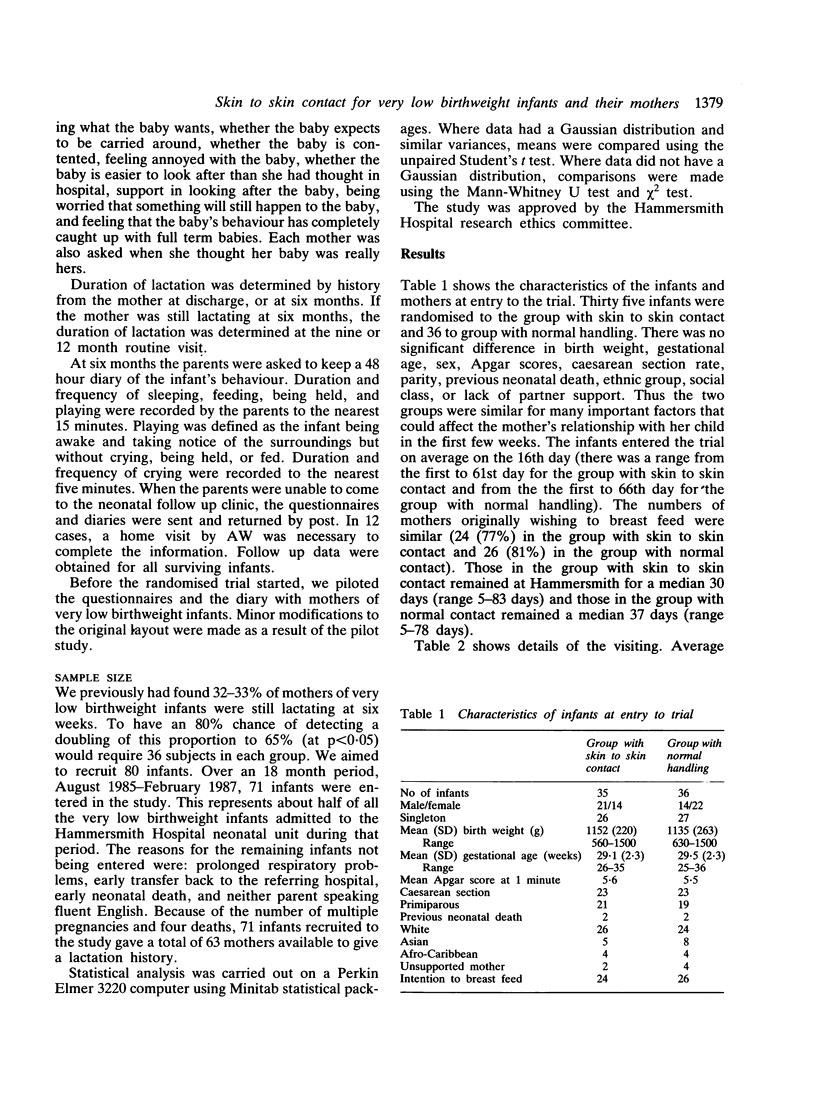
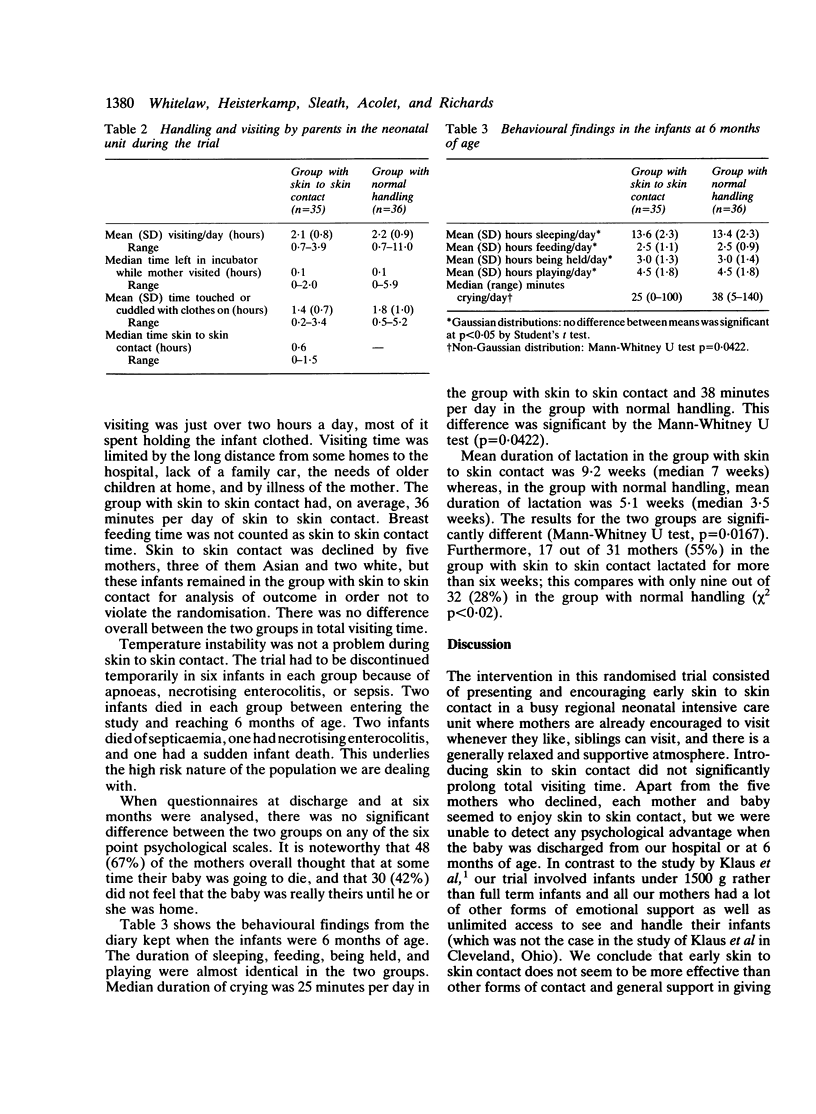
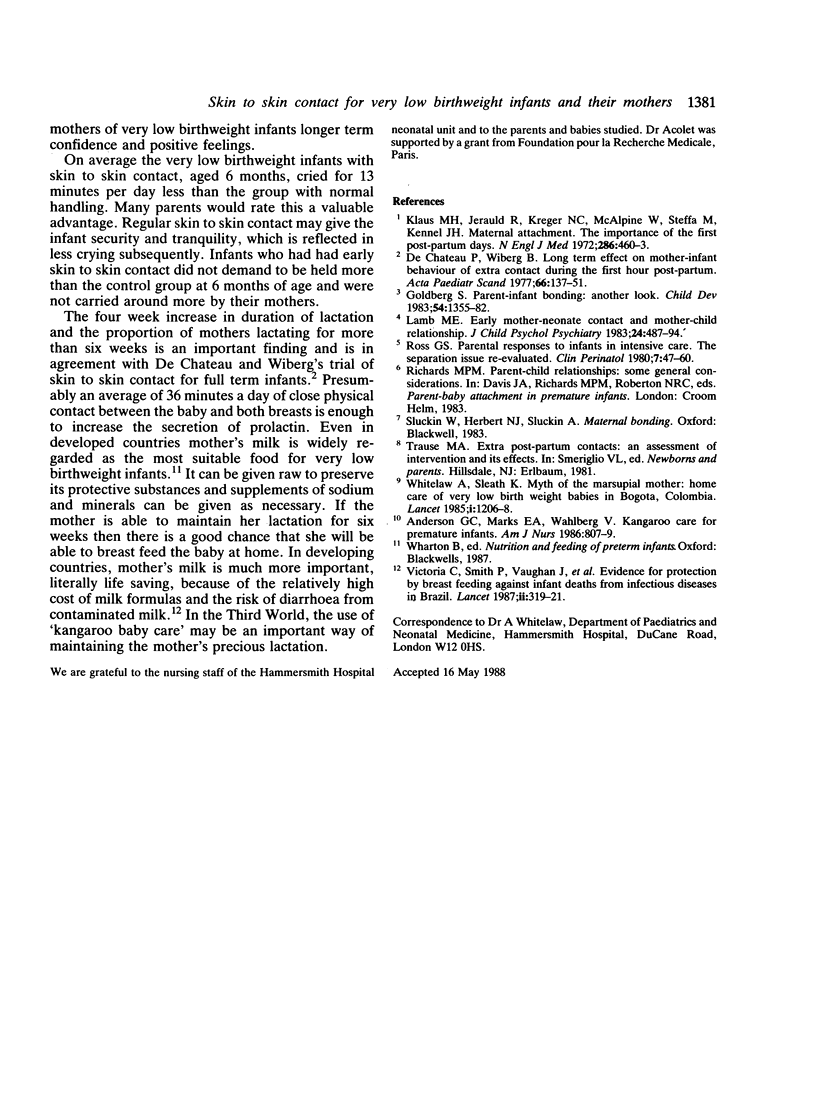
Images in this article
Selected References
These references are in PubMed. This may not be the complete list of references from this article.
- Anderson G. C., Marks E. A., Wahlberg V. Kangaroo care for premature infants. Am J Nurs. 1986 Jul;86(7):807–809. [PubMed] [Google Scholar]
- De Chateau P., Wiberg B. Long-term effect on mother-infant behaviour of extra contact during the first hour post partum. I. First observations at 36 hours. Acta Paediatr Scand. 1977 Mar;66(2):137–143. doi: 10.1111/j.1651-2227.1977.tb07825.x. [DOI] [PubMed] [Google Scholar]
- Goldberg S. Parent-infant bonding: another look. Child Dev. 1983 Dec;54(6):1355–1382. [PubMed] [Google Scholar]
- Klaus M. H., Jerauld R., Kreger N. C., McAlpine W., Steffa M., Kennel J. H. Maternal attachment. Importance of the first post-partum days. N Engl J Med. 1972 Mar 2;286(9):460–463. doi: 10.1056/NEJM197203022860904. [DOI] [PubMed] [Google Scholar]
- Lamb M. E. Early mother-neonate contact and the mother-child relationship. J Child Psychol Psychiatry. 1983 Jul;24(3):487–494. doi: 10.1111/j.1469-7610.1983.tb00124.x. [DOI] [PubMed] [Google Scholar]
- Ross G. S. Parental responses to infants in intensive care: the separation issue reevaluated. Clin Perinatol. 1980 Mar;7(1):47–60. [PubMed] [Google Scholar]
- Whitelaw A., Sleath K. Myth of the marsupial mother: home care of very low birth weight babies in Bogota, Colombia. Lancet. 1985 May 25;1(8439):1206–1208. doi: 10.1016/s0140-6736(85)92877-6. [DOI] [PubMed] [Google Scholar]



